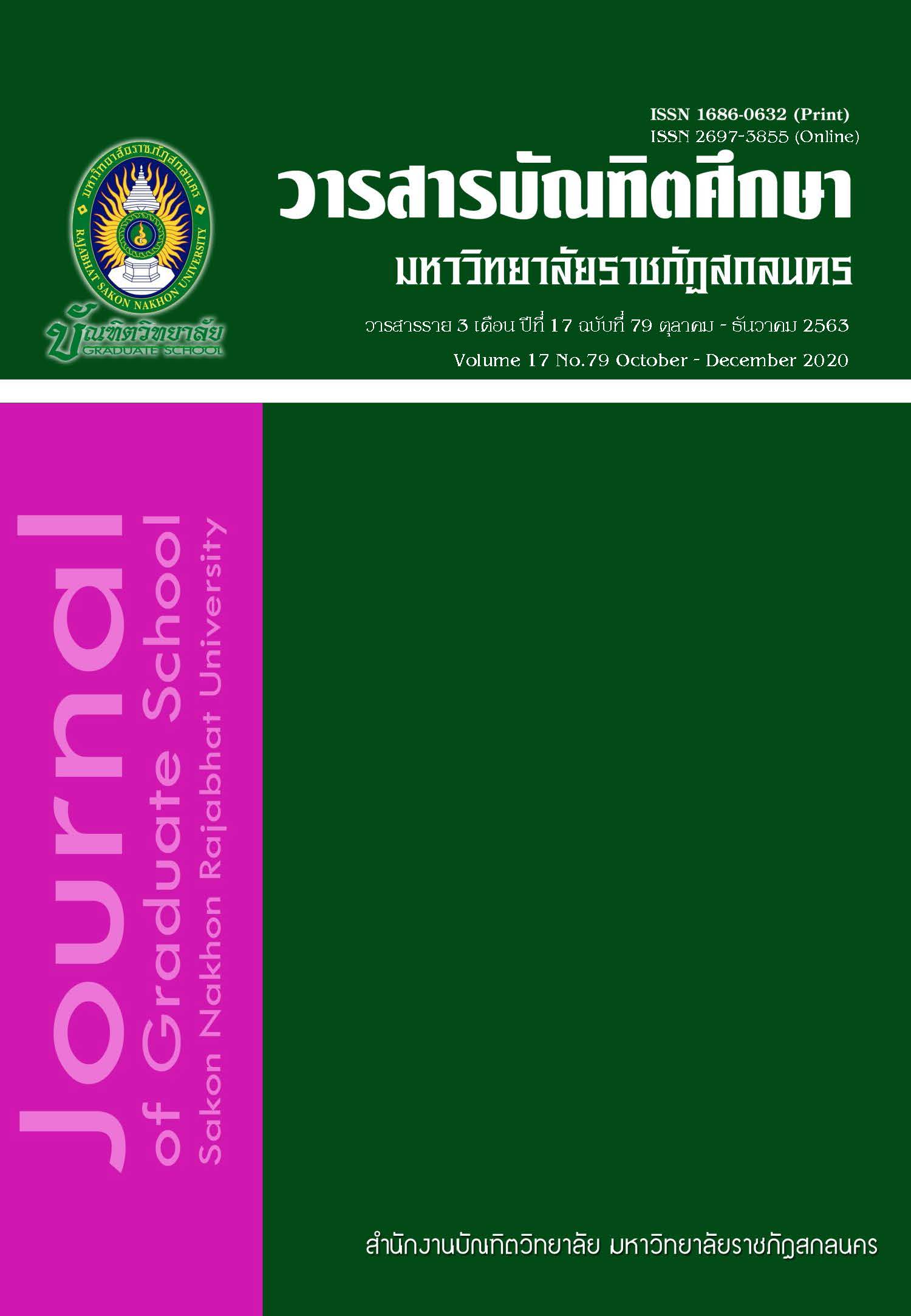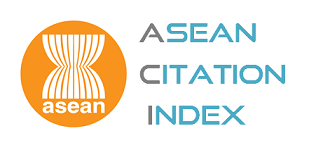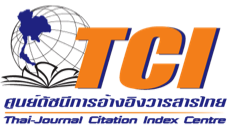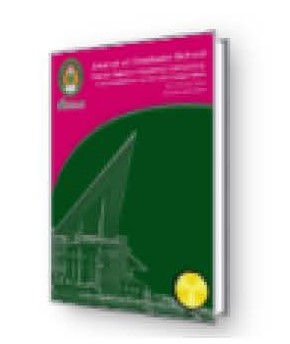รูปแบบการบริหารจัดการหลักสูตรสถานศึกษาตามหลักปรัชญาของเศรษฐกิจพอเพียง ในโรงเรียนสังกัดสำนักงานเขตพื้นที่การศึกษามัธยมศึกษา เขต 26 มหาสารคาม
Keywords:
Thongchai Janpanya ; Asst. Prof. Dr. Urasa Promta ; Asst. Prof. Dr. Arun SuikraduangAbstract
The purposes of this research were: 1) to create a school curriculum administrative management model integrating with principles of sufficiency economy philosophy in schools under the Secondary Educational Service Area Office 26 Mahasarakham, 2) to examine the results after the implementation of the developed school curriculum administrative management model. Action research was conducted with the samples, selected through purposive sampling, consisting of personnel from Borabue School. The tools used for gathering data were an interview form, an evaluation form to evaluate the developed model, and a set of questionnaires of satisfaction toward the developed school administrative management. Data were analyzed by using content analysis, mean and standard deviation.
The findings were as follows:
- The Model of School Curriculum Administrative Management Integrating with Principles of Sufficiency Economy Philosophy in Schools under the Secondary Educational Service Area Office 26 Mahasarakham consisted of six aspects as a PHD FIT Model: Plan (Planning), Human (Personnel Readiness), Do (Curriculum Construction), Formation (Model Construction for Curriculum Implementation), Implement (Implementation of Learning Management), and Test (Validation, Supervision, Monitoring and Evaluation).
- The evaluation results after the implementation of the developed model revealed that the developed model as perceived by school administrators, teachers and school basic educational committee was suitable at a high level of mean scores of 3.98, and the satisfaction level at a high level of mean scores of 4.42. School administrators, teachers and school basic educational committee suggested that parents, communities, and related agencies should become involved in administrative management, which would result in teachers being confident in learning management and student quality outcomes.
References
กระทรวงศึกษาธิการ. (2544). คู่มือการบริหารจัดการหลักสูตรสถานศึกษาขั้นพื้นฐาน. กรุงเทพฯ: โรงพิมพ์คุรุสภาลาดพร้าว
กระทรวงศึกษาธิการ. (2548). พระราชบัญญัติระเบียบบริหารราชการกระทรวงศึกษาธิการ พ.ศ. 2548. กรุงเทพฯ: โรงพิมพ์องค์การรับส่งสินค้า.
คณะกรรมการการศึกษาขั้นพื้นฐาน. (2551). คู่มือคำรับรองการปฏิบัติราชการ ประจำปีงบประมาณ พ.ศ. 2551. กรุงเทพฯ: สำนักพิมพ์เสมาธรรม.
คณะกรรมการขับเคลื่อนเศรษฐกิจพอเพียง. (2550). เศรษฐกิจพอเพียงคืออะไร?. กรุงเทพฯ: กลุ่มงานเศรษฐกิจพอเพียง สำนักงานคณะกรรมการเศรษฐกิจพอเพียง.
คณะกรรมการขับเคลื่อนเศรษฐกิจพอเพียง. (2550). ยุทธศาสตร์การขับเคลื่อนปรัชญาของเศรษฐกิจพอเพียงสู่สถานศึกษา (2550-2554). ศูนย์ประสานงานกลางการดำเนินการโครงการอันเนื่องมาจากพระราชดำริสำนักงานพัฒนากิจการนักเรียนนักศึกษาและกิจการพิเศษ. กรุงเทพฯ: สำนักปลัดกระทรวง กระทรวงศึกษาธิการ.
Chris peel, J & Ann, H. (1990). A study of Factor Contributing to Achieving and Sustaining School Effective in Elementary School. DAL. 51/07 A.
Downloads
Published
How to Cite
Issue
Section
License
บทความทุกบทความที่ตีพิมพ์ในวารสารบัณฑิตศึกษา มหาวิทยาลัยราชภัฏสกลนคร ถือว่าเป็นลิขสิทธิ์ของบัณฑิตวิทยาลัย มหาวิทยาลัยราชภัฏสกลนคร










